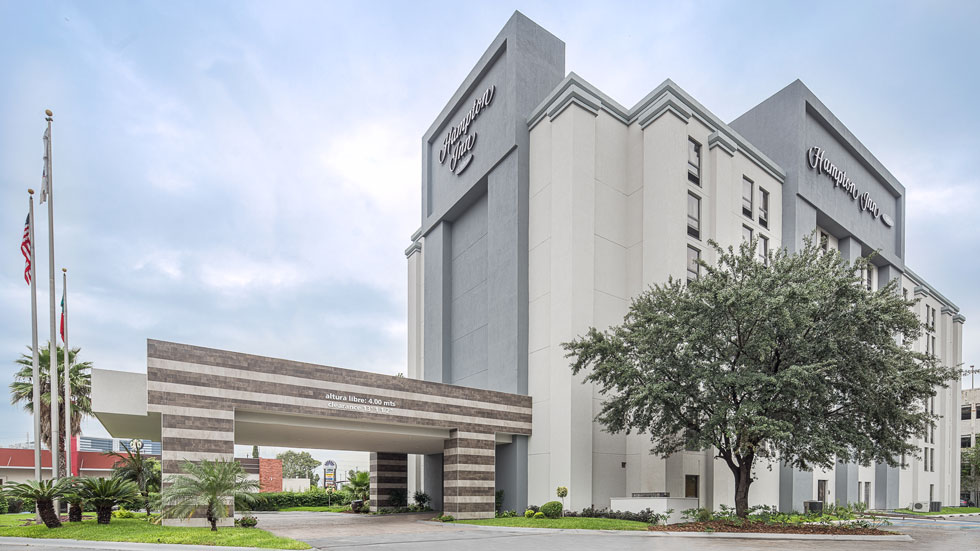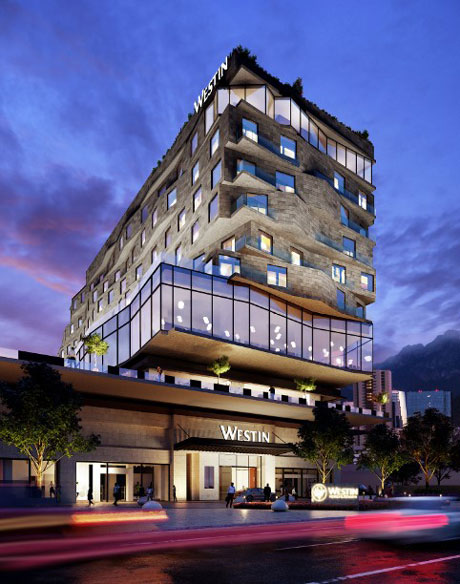Ahead of FIBRA Day 2023 on Sept. 7 in New York City, hosted by AMEFIBRA, the Mexican Association of Real Estate FIBRAs (REITs), REIT.com spoke to a range of FIBRAs about the major developments they see shaping their markets.
Fibra Inn (BMV: FINN13) was formed primarily to acquire and develop hotel properties with competitive rates in markets mainly driven by industrial and corporate activity, located near industrial parks, airports, office complexes, and business centers. Its portfolio is highly diversified, with properties strategically located throughout Mexico, while partnerships are also in place with international operators. Oscar Calvillo , Fibra Inn’s CEO, shared his thoughts with REIT.com.
How would you describe fundamentals in your sector of the commercial real estate market today, and for Mexico more broadly?
Oscar Calvillo: In the hospitality sector, there has been a full recovery since the pandemic, in both leisure and urban destinations. The leisure and resort markets had an early recovery, even during the pandemic, because Mexico was one of the few countries that never closed its borders to foreign travelers. This allowed many visitors from the United States and Canada to get the chance to know Mexico for the first time and now regard Mexico as a favorite spot for traveling.
In urban markets, we suffered during the pandemic. Recently, however, we are experiencing a full recovery that already surpasses pre-pandemic occupancy levels but still lags with respect to average daily rate (ADR) in real terms. The flow of investments into manufacturing facilities for export products to the U.S. and Canadian markets due to the nearshoring phenomenon has increased the flow of travelers to our hotels, mainly in the northern part of the country.
The market for hospitality assets has been adversely affected by the increase in interest rates impacting valuations (which many owners don´t accept, therefore halting the number of transactions) and the reluctance of financial institutions to fund purchases with debt.
Where do you see the biggest growth opportunities for your company in the year ahead?
There are opportunities in both luxury and ultra luxury markets as well as in the all-inclusive market geared to the middle market. This year, though, we are suffering from a kind of traveling revenge due to many U.S. and Canadian travelers visiting Europe, which they didn´t do during the pandemic and avoided last year because of the war in Ukraine. This is a trend that will correct in one or two years.
How active is the transaction market and to what extent are you involved?
It is quite active with many opportunities in the market. We raised 1.5 billion pesos (about $88 million) of equity in June, so we have resources to invest in acquisitions. Most importantly, we have access to equity markets if additional resources are needed, so long as our underwriting is top notch.
Can you describe the role that sustainability is playing in your overall strategy?
We are committed to integrating sustainable practices across all aspects of our operations. On an environmental level, we strive to minimize our carbon footprint. This includes implementing energy-efficient technologies.
In terms of social responsibility, we value equity and diversity. Our strategy is built upon respecting human rights, providing safe and fair working conditions, as well as offering development and growth opportunities for our employees.
Economically, we believe in long-term viability. While sustainability investments might have initial costs, we recognize that they will yield benefits in the long run by reducing risks, enhancing reputation, and meeting evolving consumer demands.
In summary, sustainability isn't just an accessory in our strategy. We seek a balance between commercial success and social and environmental responsibility, working towards a more prosperous and equitable future for all.
In what ways has the nearshoring trend impacted your operations and are there particular adjustments you have made in response?
As I mentioned before, there are new development and acquisition opportunities that we are considering in nearshoring markets. Regarding the operation of existing properties, we are suffering the adverse effect of peso appreciation due in part to the investment flows, and the inflation in labor markets due to increased labor demand in factories geared toward the export markets. Both of these impacts are generated by nearshoring.
What trends have you seen regarding international investment in FIBRAs and how active are you in terms of engaging with international investors?
There has been a growing trend of investment, driven by factors such as globalization, demand for stable yields, access to specialized markets, nearshoring, and opportunities in emerging markets. Engaging with international investors is one of our priorities, as we understand the importance of building and maintaining strong relationships. Our goal is to create an open dialogue, address inquiries, and offer the necessary resources to support investors in making informed decisions about their investment in our company.
I s there an aspect to investing in FIBRAs that you wish was better understood?
In Mexico we haven’t been able to make investors understand that investing in FIBRAs should be compared with investments in real estate assets, rather than comparing it to investments in equity securities or bonds.
For students and professionals seeking out career opportunities in FIBRAs or commercial real estate, what advice would you give them?
Students and professionals seeking a career should focus on a solid education in finance, economics, real estate, or a similar discipline that can provide the foundational knowledge needed to understand the complexities of FIBRAs and commercial real estate. In addition, build a network by connecting with other professionals and attend events, gain experience through internships or entry-level roles, specialize in a specific area (e.g., office, retail, hospitality, industrial)., develop analytical skills, stay updated on market trends, and hone soft skills like communication, persistence, research, a commitment to continuous learning, and to upholding high ethical standards.

